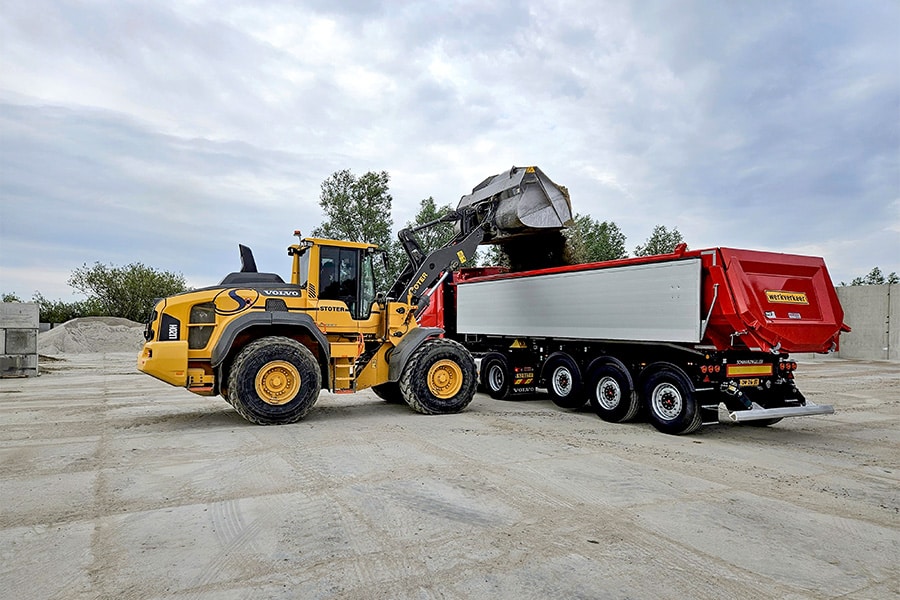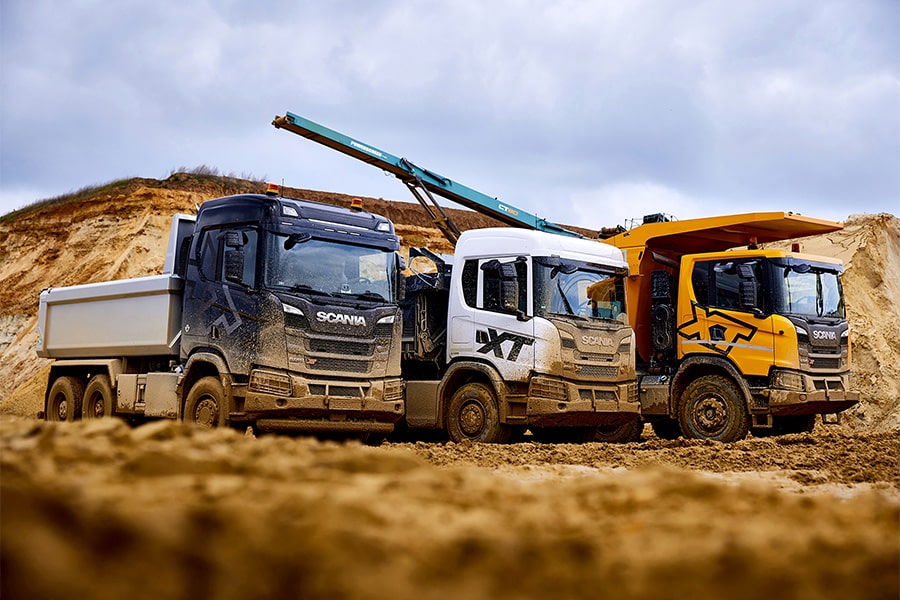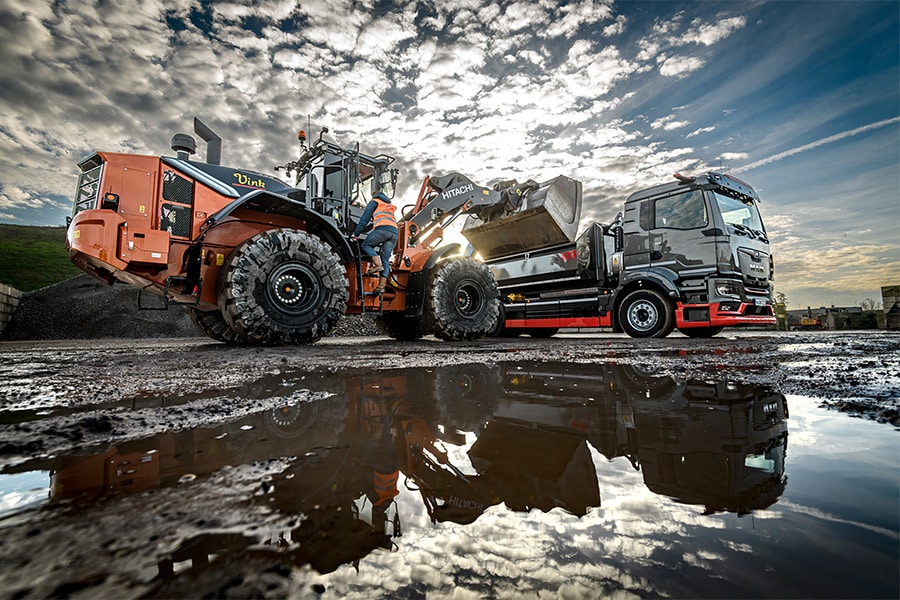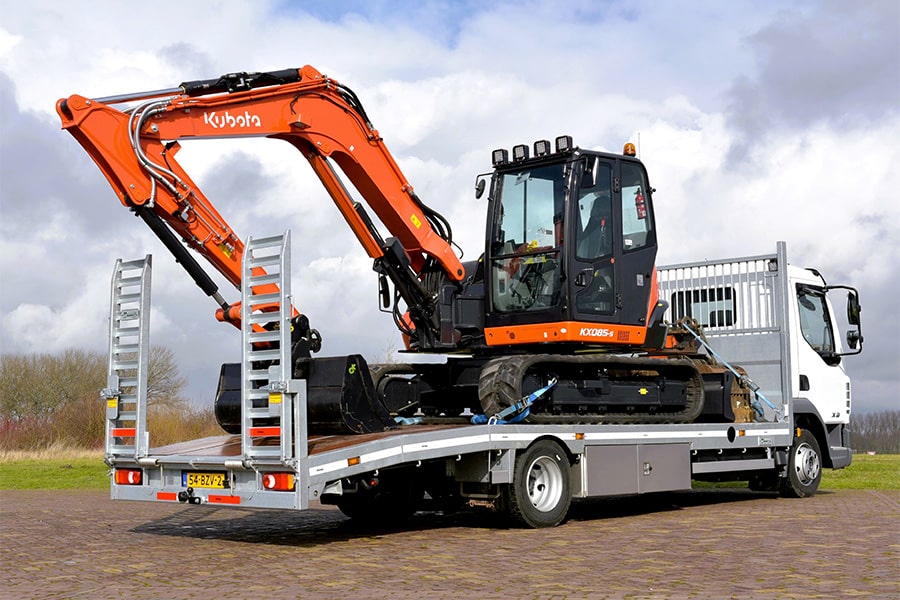
Jan De Nul Group 2018: sustainable investment in the future
Key figures
- Stable sales of EUR 1,708 million
- EBITDA margin of 16% or EBITDA of EUR 277 million in line with the industry average
- Net profit of EUR 31 million
- Particularly high solvency ratio of 73% thanks to continuous profit retention
- Free of net debt for fifth year in a row
- Increased order book compared to the end of 2017 by 27% (EUR 3.3 billion)
- Continued High level of investment, particularly in the offshore renewable energy sector, and with attention to climate
Continuing to invest in the future with an ultra-strong balance sheet profile
Not totally unexpectedly, 2018 was a continuation of the challenging market conditions of 2017. The international dredging business has persistently faced a tight market for several years in a row due to a lack of public and private investment. In addition, the offshore sector still did not experience a significant recovery in the oil and gas market. However, Jan De Nul Group has been strongly committed to the offshore renewable energy market for several years, resulting in increased activity both within and outside Europe (including Asia). The Group's civil activities are holding up well thanks to a strong real estate market combined with the traditional infrastructure market. The environmental division, as Jan De Nul Group's smallest activity branch, remains stable.
Accordingly, Jan De Nul Group achieved annual sales of €1,708 million in 2018. EBITDA was 277 million or 16.22% of sales, a performance in line with the industry average. Jan De Nul Group continues to distinguish itself through its ultra-strong balance sheet profile, with equity of more than €2.8 billion and solvency as high as 73%. The group also relies on a continued strong liquidity position with a net cash surplus of 376 million euros.
Jan De Nul Group continues to invest further in its future even in more difficult market conditions: the total investment value of ongoing investments in newbuilding dredgers at the end of 2018 was 400 million euros. In July 2018, the offshore jackup installation vessel Taillevent was acquired to immediately provide increased capacity to the group's offshore wind activities. Jan De Nul's belief in the future of this market is further confirmed by the order, earlier this year, of the Voltaire, a next generation installation vessel. This vessel will be delivered in early 2022 and will be able to install wind turbines up to 270 meters high, unique in the market.
Jan De Nul Group therefore looks to the future with confidence. Even in potentially continuing volatile market conditions, the group can make a difference. This is proven by the rising order book of 3.3 billion euros or an increase of no less than 27% compared to the end of 2017.
Activities in 2018
Also in 2018, the bulk of Jan De Nul Group's business is playing out within the maritime dredging and offshore sector with revenue generation of 75% of the group's total revenue.
In 2018, Jan De Nul Group's activities included major coastal protection projects such as in the Dutch island of Texel, where Jan De Nul constructed a sustainable dike in the form of dunes and underlying nature reserve to protect the island from the influences of the sea.
Furthermore, Jan De Nul was involved in the construction of several offshore wind farm projects such as Trianel Wind Farm, Borkum Riffgrund 2, Race Bank and Kriegers Flak. After the successful realization of complete offshore wind farms by Jan De Nul Group (Nobelwind Offshore Wind Farm in Belgium and Tahkoluoto Offshore Wind Farm in Finland), Jan De Nul significantly expanded its portfolio. Jan De Nul Group was contracted in 2018 for the construction of the Northwester 2 offshore wind farm in Belgium and in 2018 won the first contracts for the construction of wind farms outside Europe: the design and installation of offshore wind farms in Changhua and Formosa 1 Phase 2 in Taiwan and also the installation of offshore wind turbines in the United States.
The 2018 financial year reaffirms the continued importance of civil activities within Jan De Nul Group by realizing 21% of the group's total revenue. In 2018, Jan De Nul executed a variety of civil construction and maintenance projects including residential buildings, school infrastructure, healthcare facilities, road infrastructure, viaducts, quay walls and locks. Jan De Nul Group is also increasingly betting on the private market. In addition, the group continues its targeted expansion in the civil markets of the Netherlands and Luxembourg, particularly for complex infrastructure works
Envisan, Jan De Nul Group's environmental division, focuses on environmental technology solutions. The business remains stable at 4% of total sales. To support these environmental activities, the group owns and operates six cleaning and valorization centers in Belgium and France. As in previous years, the environmental division works closely with the maritime and civil divisions, and in particular with the brownfield developer PSR Brownfield Developers.
High solvency and net debt free
Jan De Nul Group maintained its high solvency position in the 2018 financial year with a ratio of 73% (75% in 2017). Equity increased from 2,823 million euros in 2017 to 2,859 million euros in 2018.
Since the 2014 financial year, Jan De Nul Group has been net debt-free. This is quite remarkable given the strong and necessary investment nature of the group. The net cash position even increased in 2018 to a level of 376 million euros (345 million euros in 2017). This solid balance sheet profile is a major asset for Jan De Nul in the context of future investments in its fleet, among others, or in the event of major opportunities.
Turnover distribution geographically
Jan De Nul Group has a strong presence in Europe. 56% of its 2018 revenue was realized on the European continent, an increase of 10% compared to last year. This increase is mainly due to the growth of Jan De Nul Group's share in the European offshore renewable energy market. Furthermore, in 2018, Jan De Nul Group was active in Asia and the Middle East (19%), the Americas (17%), Africa (7%) and limited operations in Australia (1%).
Order book grows by 27%
2018 closed with an order book of 3.3 billion euros or an increase of 27% compared to the end of 2017. Jan De Nul Group's order book includes the following major projects:
- In Ecuador, Jan De Nul Group signed the concession for the deepening and maintenance of the 95-km canal to the port of Guayaquil. Not only will Jan De Nul Group be responsible for the deepening of the existing access channel, but also for the maintenance and operation of the channel for 25 years after the deepening works.
- Jan De Nul Group signed the contract to build Northwester 2, the seventh wind farm off the Belgian coast. This marks the third time Jan De Nul has partnered with wind farm developer Parkwind. Located 48 kilometers off the coast, the Northwester 2 wind farm will have the largest and most powerful wind turbines available on the market today. The installation works will start in June 2019 with Jan De Nul undertaking the design of the foundations, responsible for the procurement and installation of the foundations, and the installation of the cables and wind turbines.
- Luxembourg's Ministry of Sustainable Development and Infrastructure Works awarded the contract for the widening of the 'La Passerelle' viaduct to Jan De Nul Group. This nineteenth-century bridge is a UNESCO World Heritage Site and forms the southern entrance to the center and station of the city of Luxembourg. Jan De Nul has been commissioned to widen the bridge's road surface.
- In 2018, the Ministry of Welfare and Environment in Benin chose Jan De Nul Group's in-house developed concept in which an underwater dike is being constructed off the coast that will protect the coastline from the influences of the Atlantic Ocean. The dike ensures that the force of waves from the Atlantic Ocean is broken even before they reach the coast. Between the dike and the coast a wave-protected area is created. This will significantly reduce the impact on the beaches, reducing sand movement and erosion. After construction of the underwater dike, trailing suction hopper dredgers from Jan De Nul Group will backfill the impacted beaches with new, dredged sand. The work is expected to be completed in 2021.
Sustainable investments for the future
Jan De Nul Group continues to invest in the future even in the current tight market conditions:
- In March 2019, the Keppel Singmarine shipyard in Nantong, China, delivered the first of three 3,500 m³ trailing suction hopper dredgers: the Afonso de Albuquerque. The two sister vessels Diogo Cão and Tristão da Cunha followed in April 2019.
- Construction progressed at the Keppel Offshore & Marine shipyard in Singapore on the two 6,000 m³ trailing suction hopper dredgers Sanderus and Ortelius. The vessels will be delivered by the end of 2019.
- During 2018, the COSCO shipyard in Dalian, China, refined the design of the 18,000 m³ trailing suction hopper dredger and purchased the necessary ship components. In January 2019, steel construction works for the hull began. Construction is proceeding entirely on schedule. Delivery of the vessel is scheduled during 2020.
- In 2018, Jan De Nul Group purchased three offshore supply vessels. The vessels will be converted into water injection dredgers (Water Injection Dredgers or WID). This type of vessels is used to level or deepen the seabed by means of a water injection system that suspends and moves the soil. These diesel-electric vessels, equipped with Dynamic Positioning (DP), are named Giovanni Venturi, Henry Darcy and Henri Pitot.
- In early April 2019, Jan De Nul Group ordered a large offshore jack-up installation vessel from the shipyard COSCO Shipping Heavy Industry (China). This jack-up vessel will be equipped with a main crane of more than 3,000 tons and will be able to work in water depths of more than 80 meters. The vessel will be able to install the new generation of very large offshore wind turbines.
In a world of climate change and globally increasing environmental awareness, Jan De Nul Group has chosen to equip its latest generation of vessels with an ingenious filter system developed in-house to eliminate toxic substances from the exhaust gases. The vessels equipped with these filters meet the most stringent emission requirements of the European regulations for inland navigation (Stage V) - more stringent than the current IMO regulations for maritime navigation. Jan De Nul Group is the first in its sector to launch vessels that meet the strictest European emission standards. The vessels are awarded a ULEv (Ultra-Low Emission vessel) notation from the independent, and globally known, inspection and classification body: Bureau Veritas.
Online annual report 2018
Retrieved from annualreport.jandenul.com you can consult Jan De Nul Group's full activity and financial report. We are also pleased to present here some of Jan De Nul Group's star projects in 2018.



